第34章 SUICIDE(3)
Correspondence,in which the pen is always bolder than speech,and thought,wreathing itself with flowers,allows itself to be seen without disguise,and brought the countess to the highest pitch of enthusiasm.She believed she saw in Raoul one of the noblest spirits of the epoch,a delicate but misjudged heart without a stain and worthy of adoration;she saw him advancing with a brave hand to grasp the sceptre of power.Soon that speech so beautiful in love would echo from the tribune.Marie now lived only in this life of a world outside her own.Her taste was lost for the tranquil joys of home,and she gave herself up to the agitations of this whirlwind life communicated by a clever and adoring pen.She kissed Raoul's letters,written in the midst of the ceaseless battles of the press,with time taken from necessary studies;she felt their value;she was certain of being loved,and loved only,with no rival but the fame and ambition he adored.She found enough in her country solitude to fill her soul and employ her faculties,--happy,indeed,to have been so chosen by such a man,who to her was an angel.
During the last days of autumn Marie and Raoul again met and renewed their walks in the Bois,where alone they could see each other until the salons reopened.But when the winter fairly began,Raoul appeared in social life at his apogee.He was almost a personage.Rastignac,now out of power with the ministry,which went to pieces on the death of de Marsay,leaned upon Nathan,and gave him in return the warmest praise.Madame de Vandenesse,feeling this change in public opinion,was desirous of knowing if her husband's judgment had altered also.
She questioned him again;perhaps with the hope of obtaining one of those brilliant revenges which please all women,even the noblest and least worldly,--for may we not believe that even the angels retain some portion of their self-love as they gather in serried ranks before the Holy of Holies?
"Nothing was wanting to Raoul Nathan but to be the dupe he now is to a parcel of intriguing sharpers,"replied the count.
Felix,whose knowledge of the world and politics enabled him to judge clearly,had seen Nathan's true position.He explained to his wife that Fieschi's attempt had resulted in attaching to the interests threatened by this attack on Louis-Philippe a large body of hitherto lukewarm persons.The newspapers which were non-committal,and did not show their colors,would lose subscribers;for journalism,like politics,was about to be simplified by falling into regular lines.If Nathan had put his whole fortune into that newspaper he would lose it.
This judgment,so apparently just and clear-cut,though brief and given by a man who fathomed a matter in which he had no interest,alarmed Madame de Vandenesse.
"Do you take an interest in him?"asked her husband.
"Only as a man whose mind interests me and whose conversation I like."This reply was made so naturally that the count suspected nothing.
The next day at four o'clock,Marie and Raoul had a long conversation together,in a low voice,in Madame d'Espard's salon.The countess expressed fears which Raoul dissipated,only too happy to destroy by epigrams the conjugal judgment.Nathan had a revenge to take.He characterized the count as narrow-minded,behind the age,a man who judged the revolution of July with the eyes of the Restoration,who would never be willing to admit the triumph of the middle-classes--the new force of all societies,whether temporary or lasting,but a real force.Instead of turning his mind to the study of an opinion given impartially and incidentally by a man well-versed in politics,Raoul mounted his stilts and stalked about in the purple of his own glory.
Where is the woman who would not have believed his glowing talk sooner than the cold logic of her husband?Madame de Vandenesse,completely reassured,returned to her life of little enjoyments,clandestine pressures of the hand,occasional quarrels,--in short,to her nourishment of the year before,harmless in itself,but likely to drag a woman over the border if the man she favors is resolute and impatient of obstacles.Happily for her,Nathan was not dangerous.
Besides,he was too full of his immediate self-interests to think at this time of profiting by his love.
But toward the end of December,when the second notes fell due,du Tillet demanded payment.The rich banker,who said he was embarrassed,advised Raoul to borrow the money for a short time from a usurer,from Gigonnet,the providence of all young men who were pressed for money.
In January,he remarked,the renewal of subions to the paper would be coming in,there would be plenty of money in hand,and they could then see what had best be done.Besides,couldn't Nathan write a play?As a matter of pride Raoul determined to pay off the notes at once.Du Tillet gave Raoul a letter to Gigonnet,who counted out the money on a note of Nathan's at twenty days'sight.Instead of asking himself the reason of such unusual facility,Raoul felt vexed at his folly in not having asked for more.That is how men who are truly remarkable for the power of thought are apt to behave in practical business;they seem to reserve the power of their mind for their writings,and are fearful of lessening it by putting it to use in the daily affairs of life.
Raoul related his morning to Florine and Blondet.He gave them an inimitable sketch of Gigonnet,his fireplace without fire,his shabby wall-paper,his stairway,his asthmatic bell,his aged straw mattress,his den without warmth,like his eye.He made them laugh about this new uncle;they neither troubled themselves about du Tillet and his pretended want of money,nor about an old usurer so ready to disburse.
What was there to worry about in that?